How SimCity is different from any SimCity youve ever played
Hopefully there's still some Reticulating Splines
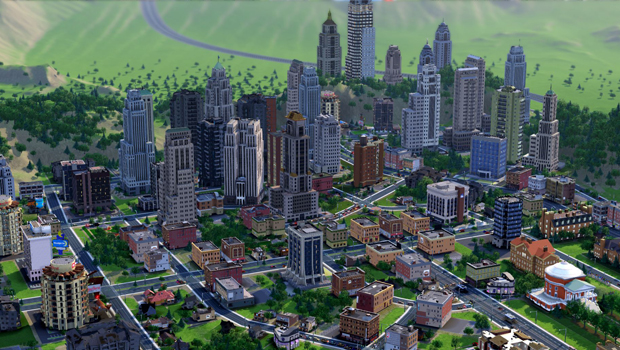
A whole new world
We've talked about the changes in next year's SimCity reboot a few times already, but now we've seen a few more iterations of the game in the past couple months and have squeezed out a few more details about the game from the developers. So what makes this version of the game so interesting? Read on to find out.
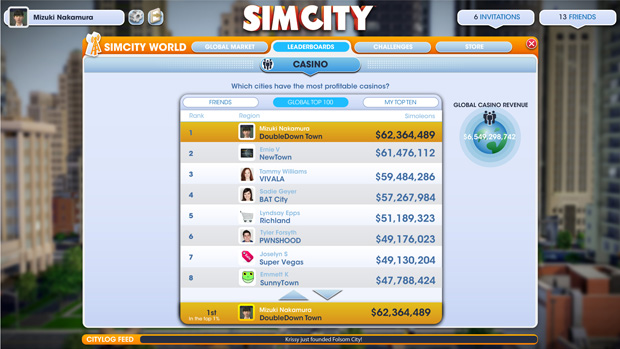
Its persistently online
It also allows for fun stuff like leaderboards, challenges, and other social features. Being able to compete with friends to see who has the most money (or the most pollution) will add infinite replayablity, even when youve build all the buildings youve ever wanted to build. EA will also be rolling out City Log, SimCity's version of Battlefield 3's Battle Log, so you can keep tabs on your friends' activities, completed challenges, and more.
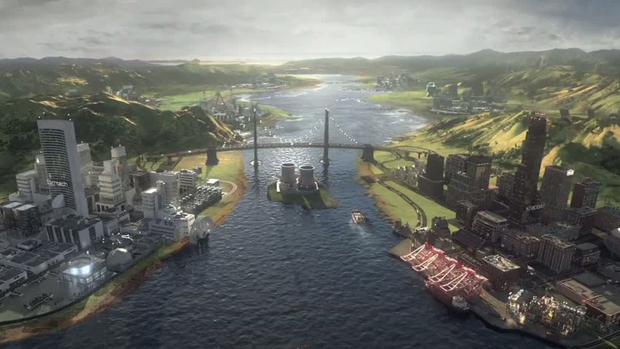
Your SimCity exists in a player-controlled SimCity World...
Before you can start building a city, you have to pick a region of the world to build in. These landmasses are made up of several plots of land, all of which can potentially be turned into cities. You can also decide who, if anyone, can build in your region. If you'd prefer to play solo, you can populate a private one; or, you can set one up so only Origin friends can build cities near your own. And if you're willing to risk getting trolled by other players, you can join an open region and play with strangers.
Potential city sites aren't made equal, though. Some are near rivers and other bodies of water, while others reside on top of mountains or plateaus. Choosing where to build will often play a role in how you build your city (which we'll cover later), and you'll want to look at resource maps to determine what kind of things your burgeoning metropolis will have in ample supply.
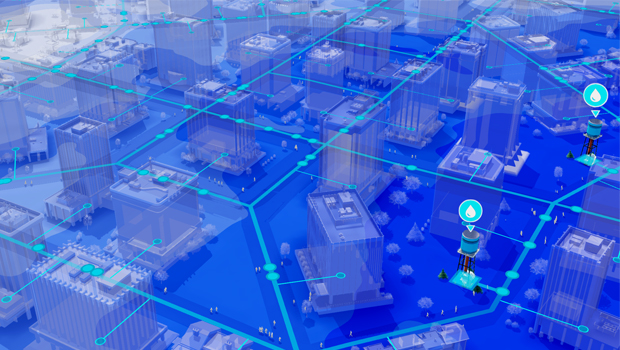
...and your region's economy is affected by how you play
Here's where things get really interesting. Whether you're playing by yourself or with others, your city (or cities, if you choose to make more than one in a region) can interact with and affect others nearby. For example, if you're building a city whose economy is built on tourism, you'll want to construct special bus terminals, ferry and train stations, and domestic airports so Sims from other cities can travel to your casinos, hotels, and other entertainment offerings.
Or, if you build an industrial town, you may want to export refined resources, such as electricity, water, or garbage removal. You can offer your surplus supplies to the global market, where other players can purchase them as needed--best of all, the prices of these exports will change depending on real in-game supply and demand data.
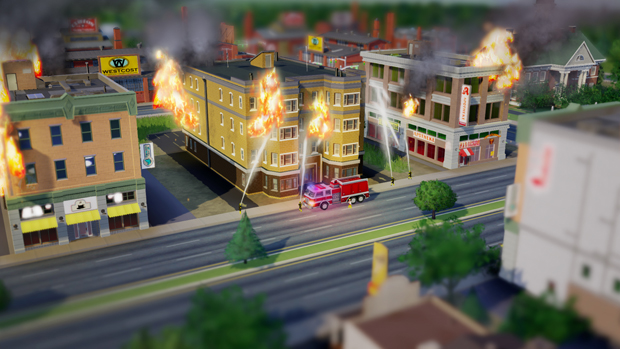
Everything is simulated
In past Sim City games everything just happened. Youd be told you need more residential areas, so youd build more residential areas. Youd be told you need more hospitals, so youd build more hospitals. In SimCity, everything happens for a reason, because everything is actually simulated. Residential areas are filled with actual Sims, who will actually drive to actual jobs and actually shop in actual stores.
If you need a new hospital, its because people are getting sick. If you need new schools, its because the Sims populating your residential district have children that can be educated to get better jobs. You can even track and monitor any Sim in your city. Clicking on cars on any road presents detailed information about the name, desires, and destination of your Sims, and they'll stay in your city so long as they don't have economic reasons for leaving. Its resource-based, in a way, thanks to the games GlassBox engine. It makes this all easy to see and understand, creating a SimCity that feels more like a real city.
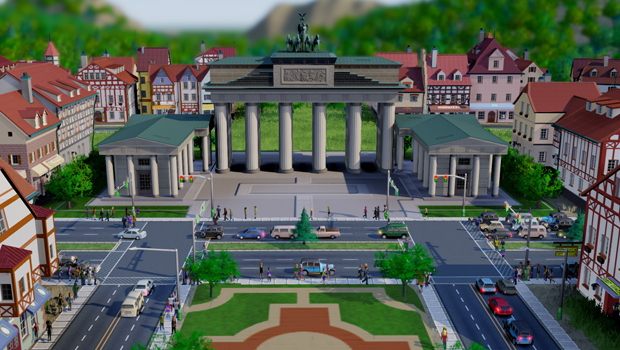
...which makes for a more realistic zoning balance
Old SimCity players will be familiar with the RCI cycle, which refers to the balance between residential, commercial, and industrial zoning. But because your virtual cities are now populated by real virtual Sims, you'll have to take those Sims' needs into account when building.
Here's how a typical Sim's "life loop" works in SimCity: First, Sims need a place to live, and so they'll populate vacant residential housing. Each Sim's main goal is to obtain happiness (an actual, measurable resource), and it will do so by working to earn money, and then spending that money on commercial commodities. You'll also have to worry about keeping industrial and commercial businesses happy. For industry, that means having workers and having places to sell goods; for commercial, that means having shoppers and selling goods. It's a delicate balance, and you'll have to learn how to maintain high levels of happiness for every single business and Sim in your city.
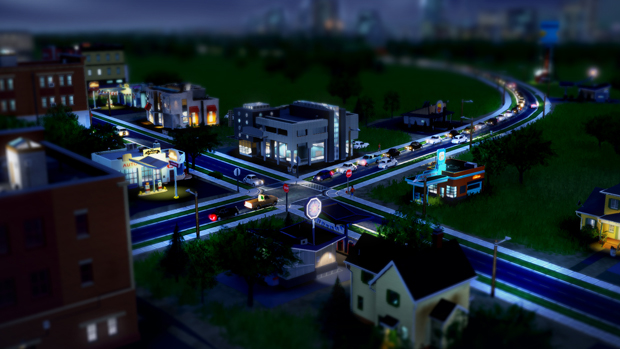
You dont have to build a massive metropolis
The reason this works is because youre able to rely on your neighbors more than you could in the past. If your city is short on something, just attach roads to the nearest city and import it from them. This is a symbiotic relationship, as youll be giving them something in return, be it workers for their industries, citizens for their houses, or shoppers for their commercial district.
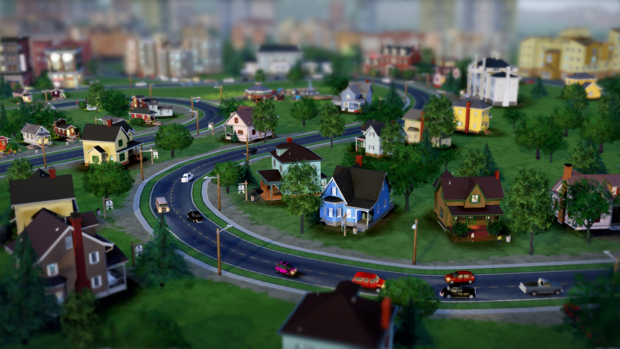
You can build curvy roads
Finally. For years, Sim City games have kept the roads straight, really hampering any chances of creating realistic (or artistic) cities. Now, roads can curve and bend, allowing you to make the city you really want to make.
That said, you still cant go too crazy--cars need to be able to make those turns, so the game limits your curvy roads within realistic limits, but itll still be nice to bend roads around mountains or create cool, circular cities. You know, if thats what youre into.
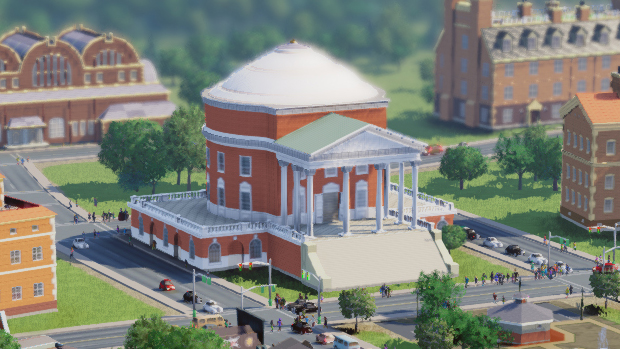
Buildings can be upgraded
If houses are burning down, you need to build new firehouses, right? Not in SimCity, which allows you to upgrade pre-existing buildings instead of building new ones. Firehouses can get new garages for more firetrucks, or other upgrades that improve their ability to serve the city.
This isnt limited to firehouses, mind you--every building you can place can be upgrade in SimCity, allowing you to focus on having a few great structures instead of a bunch of mediocre ones. Upgrading a building does increase its maintenance cost, though, so its not a free solution to all of your mayoral problems. Even things like roads and bridges can be expanded to increase traffic load without having to destroy already-placed routes first. Finally, Sims will know the pain of road construction.
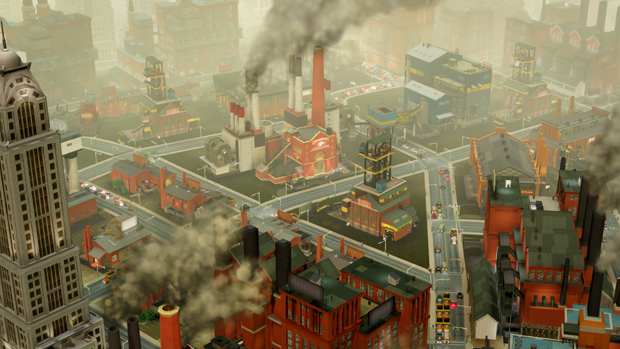
The environment, you guys
In the past, the only environmental worries you had in SimCity were things like, Will the residential district get annoyed that I built a coal-powered power plant 30 feet from their backyard? Now, things are different, and the effects of your actions can change the environment in many different ways.
People still hate having their house near a coal plant--that isnt changing, but it can also affect the relationship with your neighboring cities. No one wants smoke blown in their direction, after all. Some buildings also passively create pollution, so you need to monitor them to make sure those toxins dont end up getting into your water supply.
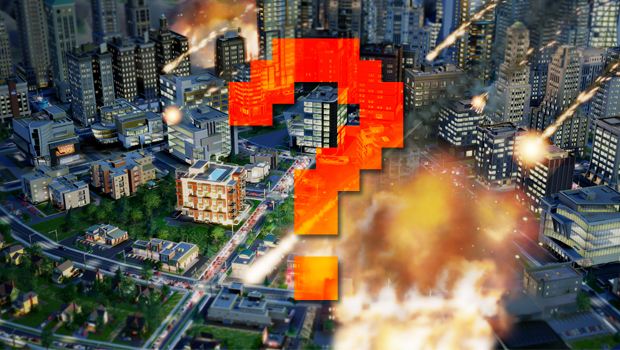
Simming it up
After we spent 30 minutes building up our mini-metropolis in SimCity, we heard a siren, the earth started to shake, and we watched as everything we had build was smashed by falling asteroids. It was a cool sight, and got us even more pumped for all of the changes coming to the game when it releases next February. What are you looking forward to from the sequel? Let us know in the comments below!
And if youre looking for more Sim-tastic coverage, check out our exclusive look at the Sims 3 Seasons and our favorite places to Woohoo in Sims 3.

Hollander Cooper was the Lead Features Editor of GamesRadar+ between 2011 and 2014. After that lengthy stint managing GR's editorial calendar he moved behind the curtain and into the video game industry itself, working as social media manager for EA and as a communications lead at Riot Games. Hollander is currently stationed at Apple as an organic social lead for the App Store and Apple Arcade.
Weekly digests, tales from the communities you love, and more
You are now subscribed
Your newsletter sign-up was successful
Want to add more newsletters?

Every Friday
GamesRadar+
Your weekly update on everything you could ever want to know about the games you already love, games we know you're going to love in the near future, and tales from the communities that surround them.

Every Thursday
GTA 6 O'clock
Our special GTA 6 newsletter, with breaking news, insider info, and rumor analysis from the award-winning GTA 6 O'clock experts.

Every Friday
Knowledge
From the creators of Edge: A weekly videogame industry newsletter with analysis from expert writers, guidance from professionals, and insight into what's on the horizon.

Every Thursday
The Setup
Hardware nerds unite, sign up to our free tech newsletter for a weekly digest of the hottest new tech, the latest gadgets on the test bench, and much more.

Every Wednesday
Switch 2 Spotlight
Sign up to our new Switch 2 newsletter, where we bring you the latest talking points on Nintendo's new console each week, bring you up to date on the news, and recommend what games to play.

Every Saturday
The Watchlist
Subscribe for a weekly digest of the movie and TV news that matters, direct to your inbox. From first-look trailers, interviews, reviews and explainers, we've got you covered.

Once a month
SFX
Get sneak previews, exclusive competitions and details of special events each month!


